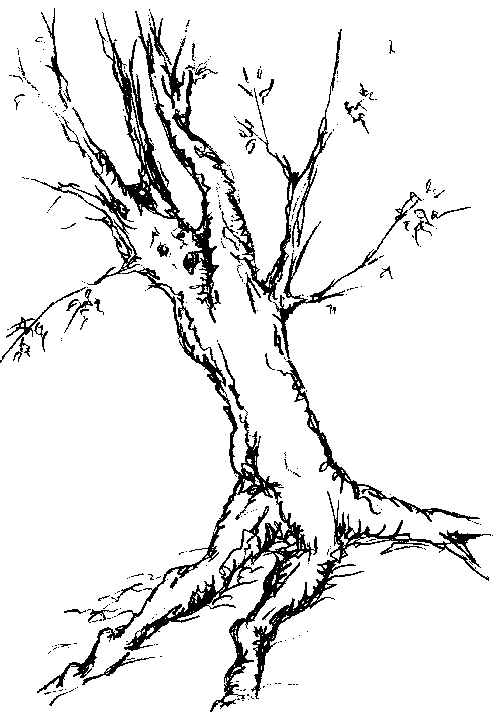It was a quiet day at the office today. But too much silence perturbs me. Is this the portent of tempestuous times ahead? I looked at the calendar and realised that today is Bhadrapada Shukla Navmi. Many centuries have gone by, but I can never forget that on this day I became a part of the Mughal Emperor Akbar’s court. As a Central Government bureaucrat, I know the approved markings of India’s border. But I also remember the India that was unified for the first time by Akbar. If I tell tales of those times, will anybody believe me?
The Mughal rule began in India when Babur defeated Sultan Ibrahim Lodi of the Delhi Sultanate in the Battle of Panipat in 1526. I was serving Krishnadevaraya at that time. Kannada was the language used most in his court. From there I went to Raja Bharmal’s in Amber. When he married his daughter to Akbar in 1562, I moved again and became a part of Akbar’s court. I had learnt Hindi in Amber and had hoped to use it in Akbar’s court too. However, despite Akbar’s support for Hindu culture and Hindi; being his courtier, I was forced to learn Persian. This was completely different from any language I had learnt before. My knowledge of Sanskrit had always helped me pick up the language of any court in India. Whenever I struggled, I used to remember this shloka:
 |
| Abu'l-Fazl ibn Mubarak presenting Akbarnama to Akbar (Credit: Wikipedia) |
न हि सुप्तस्य सिंहस्य प्रविशन्ति मुखे मृग: ।।
Udyamen hi sidhyanti, karyaani na manorathayee,
Na hi suptasya sinhasya, pravishanti mukhe mrigah
This means work gets done only by action, not by thoughts alone. Just like a sleeping lion’s mouth does not get a deer by simply dreaming of it. I used to think of it over and over again, and plough on. But Persian! Even the script of that language is in reverse, from right to left. I really had to put myself to the task to become proficient in it. Just as I had mastered the language, I heard whisperings of a new language in the country. It was called Urdu and was born when Persian and Hindi combined. Another mixing was happening in this melting pot of a nation. However, the courtiers refused to use it. They called it a ‘base’ language, only to be used by the crude and the uneducated. The Rajputs were proud of their Hindi and the Mughal courtiers wouldn’t dream of diluting their Persian. But languages have a way of sneaking in and Urdu thrived. I changed with the winds and had long lost the concept of cultural purity. At that time I said:
कुछ नई है परिंदों की चहक, कुछ नई है फ़िज़ाओं में महक
है दुनिया की फ़ितरत बदलना, वक्त का तकाज़ा हमेशा चलना
Kuchh nayi hai parindon ki chahak, kuchh nayi hai fizaon mein mahak,
Hai duniya ki fitrat badalnaa, waqt ka takazaa hameshaa chalnaa
Meaning,
There is something new in the chirping of birds,
there is something new in the smell of the air,
there is something new in the smell of the air,
It is the world’s nature to change;
it is the time’s demand to always move.
it is the time’s demand to always move.
I remember a noble ruler who would not dream of giving up his sovereignty to Akbar. Indians revere him to this day for his heroic nature - Maharana Pratap. He was proud of his native Rajput identity and treated the Mughals as invaders and intruders in India. Even after losing the battle of Haldi Ghati, Maharana Pratap kept engaging in guerrilla warfare. So many lives were lost in those battles! Wouldn’t it have been better for him to accept the Mughal rule? He and his population could have lived in peace and comfort while still maintaining their Hindu identity.
 |
| Ariel imprisoned in a tree by Sycorax Credit: Burning Coal |
A parallel development was happening during my imprisonment which was to be of great significance to Indian history. In 1702, the East India Company was revamped and the United East India Company was formed. In 1757, the Battle of Plassey brought new rulers to this country. I served in a rudimentary capacity to the British rulers until I could master their language. This happened because of one Lord Macaulay, who said in his address to the British Parliament on 2nd February, 1835:
“The dialects commonly spoken amongst the natives of this part of India contain neither literary or scientific information, and are, moreover so poor and rude .... means of pursuing higher studies can at present be effected only by means of some language not vernacular amongst them ... who could deny that a single shelf of a good European library was worth the whole native literature of India and Arabia” (Source: Scribd.com)
Alas, this was not enrichment of culture. This was destruction of the kind Aurangzeb wrecked. It was like building a new church with the stones of the fallen temple. But let us leave this tale for another day. I will tell you how I managed under the British rule in my next post.


Awesome cant u post all parts today excellent narration of history nd the times :-)
ReplyDeleteGlad to know you are enjoying it. The next part will be up at 9:30am tomorrow.
Delete